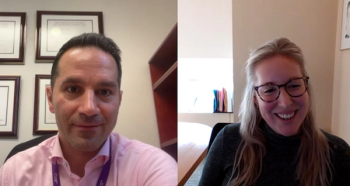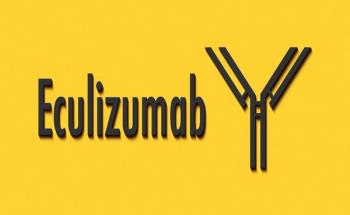
For this retrospective study, the authors examined data on more than 3 million screening mammographies for more than 1 million female patients; of the screenings, 23.6% had abnormal results and only 6.7% were recommended for biopsy.

Maggie is a senior editor for The American Journal of Managed Care® (AJMC®) and produces written, video, and podcast content covering several disease states. She joined AJMC® in 2019, and has been with AJMC®’s parent company, MJH Life Sciences®, since 2014, when she started as a copy editor.
She has a BA in English from Penn State University. You can connect with Maggie on LinkedIn.

For this retrospective study, the authors examined data on more than 3 million screening mammographies for more than 1 million female patients; of the screenings, 23.6% had abnormal results and only 6.7% were recommended for biopsy.

Quality of life, treatment impact and duration, and the importance of individualized therapy are at the center of international research on androgen deprivation therapy (ADT) for prostate cancer presented at this year’s American Society of Clinical Oncology Genitourinary Cancers Symposium.

Interim data from the ECHELON-3 trial previously showed that adding brentuximab vedotin to lenalidomide and rituximab improved overall survival among patients who have relapsed or refractory large B-cell lymphoma (R/R LBCL).

For part 3 of our interview with Katie Abouzahr, MD, Johnson & Johnson Innovative Medicine, we discuss the favorable safety and efficacy profile of nipocalimab for generalized myasthenia gravis (gMG).

George Jones of UpScript Health discusses telemedicine's evolution from basic e-prescribing to real-time video consultations, expanding treatment beyond primary care.

Jeffrey Stark, MD, vice president and head of medical immunology at UCB, discusses tailored dosing of bimekizumab-bkzx (Bimzelx) for various inflammatory conditions, highlighting its 5 FDA approvals and the remaining challenges.

Despite research showing the benefits of circulating tumor DNA as an indicator of disease remission in B-cell lymphoma, hurdles that include availability and cost remain to its widespread implementation.

The Vivacity-MG3 study is currently in its open-label extension phase, which is investigating the longer-term safety and efficacy of nipocalimab for myasthenia gravis.

On October 14, 2024, the FDA approved a 320-mg single dose of bimekizumab-bkzx (Bimzelx; UCB) in a 2-mL prefilled syringe and autoinjector; both forms are now commercially available in the US.

February 4 is World Cancer Day, and in these interviews with our Strategic Alliance Partner, NYU Langone Health, we learn about the importance of forming strong relationships with the communities you are located in and with whom you work to optimize cancer-related outcomes.

Chronic kidney disease has been linked to yo-yo dieting (also known as body-weight cycling) in the general population, which interested investigators in potential links between these weight fluctuations and increased risk of renal events among a population with type 1 diabetes.

On this episode of Managed Care Cast, we speak with Perry N. Halkitis, PhD, MS, MPH, dean of the Rutgers School of Public Health, on the public health implications of the US withdrawal from the World Health Organization and the role of public health leaders in advocating for science and health.

With historical data showing migraine to be underdiagnosed and undertreated, new guidance from the American College of Physicians (ACP) encompasses 3 recommendations on treating episodic migraine in adult patients in the outpatient setting.

In part 2 of our interview with Katie Abouzahr, MD, Johnson & Johnson Innovative Medicine, we discuss the challenge inherent in treating adolescents who have the myasthenia gravis and how nipocalimab works via FcRn blockade to reduce the circulating autoantibodies that drive myasthenia gravis.

According to the CDC, frequent consumption of sugary drinks is linked to adverse health outcomes that include obesity, type 2 diabetes, heart disease, nonalcoholic liver disease, and gout.

For this study, outcomes were compared between 2 groups of patients with myasthenia gravis: those who developed exacerbations and those who did not experience exacerbations.

To learn more about the recent bird flu outbreaks, we spoke with Asha Shah, MD, director of infectious diseases and epidemiologist at Stamford Hospital.

Christopher Sayed, MD, discusses how hidradenitis suppurativa typically presents and looks forward, following the November approval of bimekizumab.

Joining us for this episode of Managed Care Cast is Robert H. Hopkins Jr, MD, medical director at the National Foundation for Infectious Diseases (NFID), who will help separate fact from fiction about avian influenza and discuss what needs to be done to prevent a future escalation.

Attorneys General from several districts have come together in a lawsuit seeking damages from Walgreens for allegedly knowingly filling opioid prescriptions that lacked a genuine medical purpose.

This marketing decision from the FDA covers 2 nicotine strengths, 3 mg and 6 mg, and 10 flavors of the small tobacco-free synthetic pouches.

Generalized myasthenia gravis (gMG) is an autoantibody-driven chronic disease for which there is no cure.

Experts stress that persons wanting to donate blood should not stop any medications they are on, with some deferrals being permanent and others temporary.

The Bruton tyrosine kinase inhibitor was approved in combination with bendamustine and rituximab in previously untreated mantle cell lymphoma (MCL) ineligible for autologous hematopoietic stem cell transplantation and as monotherapy in previously treated MCL.

Bimekizumab (Bimzelx; UCB Pharma) was approved by the FDA to treat psoriatic arthritis (PsA) on September 23, 2024, based on data from 2 phase 3 trials: BE OPTIMAL and BE COMPLETE.

In part 2 of our interview with Karen Winkfield, MD, PhD, she speaks to the importance of ensuring health care accessibility and of knowing that the health care system is not a one-size-fits-all arrangement.

Across 5 research centers, investigators evaluated the impact of eculizumab on thymoma-associated myasthenia gravis, a severe disease subtype.

In the second half of our interview with Brita Roy, MD, MPH, MHS, NYU Grossman School of Medicine, she discusses effective engagement of minoritized populations in discussion of medical mistrust.

The bird flu, also known as avian influenza and H5N1, was implicated in the first human death from the infectious disease on January 6. But still, no human-to-human transmission has been reported.

In this second half of our interview with Vanderbilt University Medical Center’s Travis Osterman, DO, MS, FAMIA, FASCO, he discusses opportunities for advancing the smart use of artificial intelligence (AI) in cancer care.

259 Prospect Plains Rd, Bldg H
Cranbury, NJ 08512
© 2025 MJH Life Sciences®
All rights reserved.
